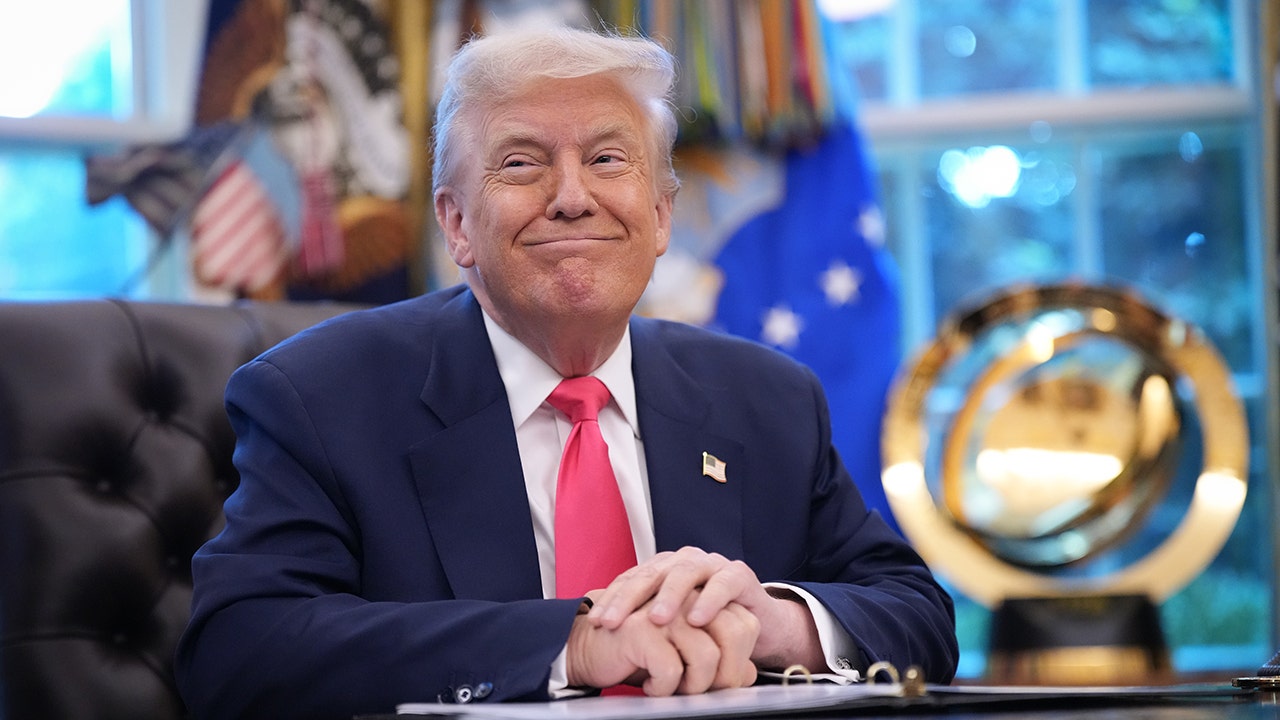Russian oligarchs, Chinese nationals, and Iranian regime allies have served on the boards of many major U.S. nonprofits, often using their positions as a way to legitimize U.S. adversaries among the American people and push for favorable policies. A new piece of legislation from Sen. Tom Cotton (R., Ark.) would outlaw that practice, the Washington Free Beacon has learned.
Cotton on Wednesday introduced a bill that would prohibit certain foreign nationals linked to China, Russia, Iran, North Korea, and other countries of concern from serving on boards of American nonprofits. Organizations that fail to comply would see their privileged tax-exempt status stripped, according to a copy of the legislation obtained by the Free Beacon.
The bill is part of a broader effort by congressional Republicans to crack down on foreign influence operations, many of which are driven by wealthy international donors who use the American nonprofit system to “virtue-wash” their reputations and promote foreign interests. Cotton’s office identified at least 57 American nonprofits that host individuals linked to Russia, China, Iran, the Palestinian territories, Syria, and Yemen.
Cotton’s legislation, dubbed the Nonprofit Governance Integrity Act, would amend the U.S. tax code “to prohibit certain foreign nationals from serving on the board of directors of tax-exempt organizations.” The bill, which is likely to receive widespread GOP support in both the House of Representatives and Senate, comes after Cotton wrote letters to the IRS urging the agency to investigate the Council on American-Islamic Relations and the Palestinian Youth Movement over the groups’ support for pro-Hamas protests across the country.
The Anti-Corruption Data Collective (ACDC) watchdog group found in 2022 that “a set of wealthy Russians, several of whom are suspected of various forms of kleptocracy or foreign political interference, have donated hundreds of millions to American charities, with some even serving on those charities’ boards.”
At least seven Russian oligarchs “directly connected to U.S. political interference campaigns” donated more than “$372 million to more than 200 American nonprofits over the past 20 years.” Those nonprofits include cultural institutions like the Guggenheim Museum and the Kennedy Center, as well as academic and political institutions such as Harvard University, the Mayo Clinic, and the Brookings Institution.
One of those wealthy Russians, Viktor Vekselberg, donated around $13.5 million through his investment company to the Lincoln Center for the Performing Arts, Carnegie Hall, and the Museum of Modern Art, according to the ACDC study. Some of that money also went to the Clinton Foundation and to the Massachusetts Institute of Technology, where Vekselberg previously served as a board member before departing in 2018.
Leonid Mikhelson, another Russian oligarch and chair of the Novatek gas supplier, used his V-A-C Foundation to provide grants to the Art Institute of Chicago and the New Museum, according to the ACDC report. Mikhelson was a member of the New Museum’s board of trustees until 2021, when the U.S. government sanctioned his company for enabling Russia’s ongoing war in Ukraine.
These types of charitable contributions, the ACDC said, function as a soft power play that helps legitimize the foreign governments donors are connected to.
China has employed a similar playbook, according to an initial review conducted by Cotton’s office.
The China General Chamber of Commerce’s U.S. branch is almost entirely composed of business leaders linked to the CCP regime. The China-United States Exchange Foundation, meanwhile, lists longtime CCP official Tung Chee-hwa as its founder and chairman emeritus. Other organizations, such as the China Scholarship Council, which brings students to the communist country, are registered as nonprofits in the United States but maintain significant ties to Beijing.
Other CCP-linked nonprofit groups the Cotton bill could affect include the Energy Foundation and the People’s Forum, both of which received scrutiny from the House Ways and Means Committee in 2024. Cotton’s legislation has the potential to turn those congressional letters into action, stripping tax-exempt status for those two nonprofits and similar groups.
A charity organization linked to the Iranian government may also find itself in federal crosshairs as a result of Cotton’s bill. The Alavi Foundation, a New York-based group formed in the 1970s by former Shah Mohammed Reza Pahlavi to promote Islamic culture in the United States, has since transitioned into an advocacy group for the Islamic Republic, according to court documents.
The Department of Justice took the Alavi Foundation to court in 2017 over the nonprofit’s work with a front company controlled by Tehran, alleging that the foundation had violated U.S. sanctions on Iran.
Prosecutors presented evidence from a former Alavi Foundation board member who allegedly referred to the United States as “the Great Satan” in a letter to Iran’s supreme leader. Additional information from the Justice Department suggested that “Iranian Ambassadors to the U.N. continued to direct the affairs of the Alavi Foundation and to attend meetings of the Alavi Foundation board” throughout the 1990s.
Cotton told the Free Beacon that this is exactly the type of behavior he aims to prevent with his new bill.
“Nonprofits that receive tax breaks should be completely free from malign foreign influence,” the senator said in a statement. “Organizations run by adversarial foreign nationals should not benefit from our tax code.”
Read the full article here







